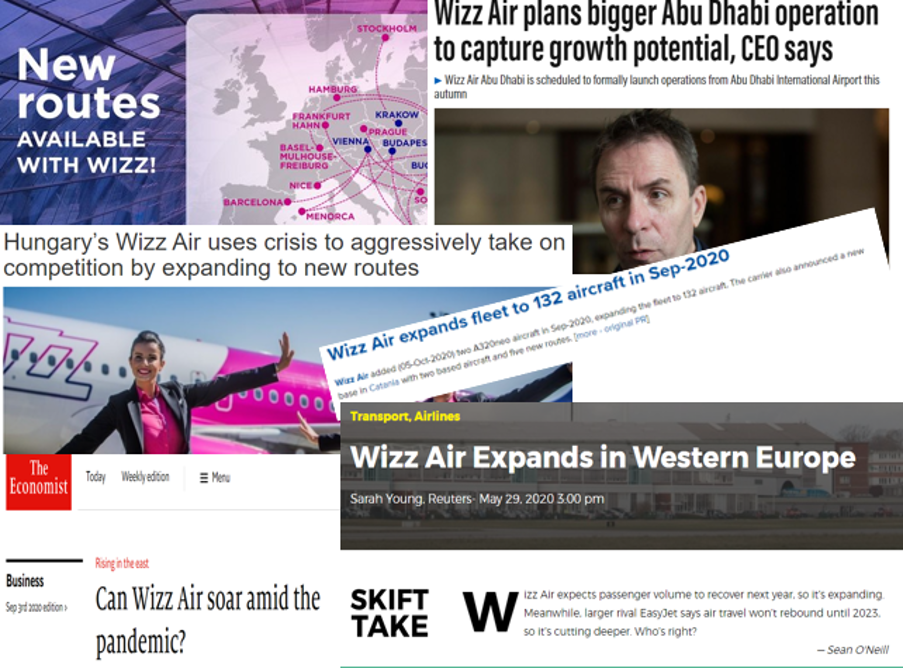

Wizz Air expands. Aggressively. While its competitors are reducing capacity due to the COVID crisis, the airline is expanding and, since March, is taking on Western Europe with new bases and routes. But the airline’s overly optimistic outlook seems now to gradually subside to the reality of low demand, travel restrictions and a 2nd COVID wave in Europe. And as the Wizz-headlines are getting less and less upbeat, the airline seems to be catching up with another miscalculation in its strategy: Western Europe’s stricter employment legislation and industrial relations culture.
The Hungarian based low-cost carrier has until now focused mainly on Eastern & Central European operations. With the announced expansion of bases to Italy, UK, Austria & Germany Wizz enters into new territory. The latest addition to Wizz’s expansion portfolio has been the carrier’s planned arrival in Norway’s domestic market.
The announcement was greeted with a lukewarm reception from Norwegian politicians and unions alike, to say the least. They argue that the low terms and conditions that Wizz Air is offering to crew are at odds with the high cost of living in Norway. This raises fears that the airline will be out-competing others, based on its low wages and low or no social benefits. This phenomenon referred to as ‘social dumping’, is still difficult to uproot in some parts of Europe – but the Nordic countries for sure are not that part.
Adding to that concern is Wizz Air’s established anti-union reputation, a page out of their main competitor’s rulebook - Ryanair. Just like Michael O’Leary, the Wizz Air CEO, József Váradi, has never shied away from admitting the airline keeps unions out on purpose. Their anti-union attitude is such that the carrier would prefer to close shop and move out of a country before working with unions. In the eastern & central parts of Europe, characterised by weak and fragmented bargaining and low levels of union coverage, that strategy was unobstructed.

Wizz Air’s new bases in countries such as Norway, Italy, Germany and UK, however, may force the airline to face a new reality. In all these countries there are long-established professional pilot associations, where social dialogue with airlines operating there is the norm. In Norway, Wizz had to already tame its anti-union talk after a reprimand by the Norwegian Prime Minister Erna Solberg. Already before starting operations, she openly supported a boycott of the company because it denies employees the right to organize:
“Like I’ve never flown with Ryanair. Ten years ago, I said that it was unacceptable for me to travel with airlines that do not have proper and orderly working conditions for their employees,” she said.
The public backlash against Wizz that followed, prompted the airline to clarify it would not prevent its employees from joining unions, if they wanted to. Yet the spokesperson omitted to clarify that a large percentage of the crew are actually ‘self-employed’ – at least on paper – and fall outside of the collective representation. Wizz also failed to declare any willingness to work with unions and engage in genuine social dialogue. Instead, they offered a nebulous alternative formula of “people’s council”. It is therefore no surprise that the unions are closely watching and ready to step in and to recall the written and unwritten employment rules that any airline – including Wizz – needs to respect. A new reality for József Váradi.